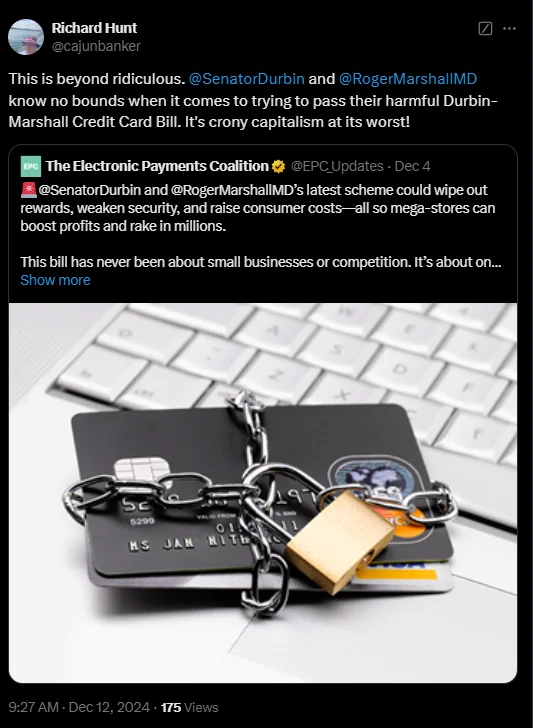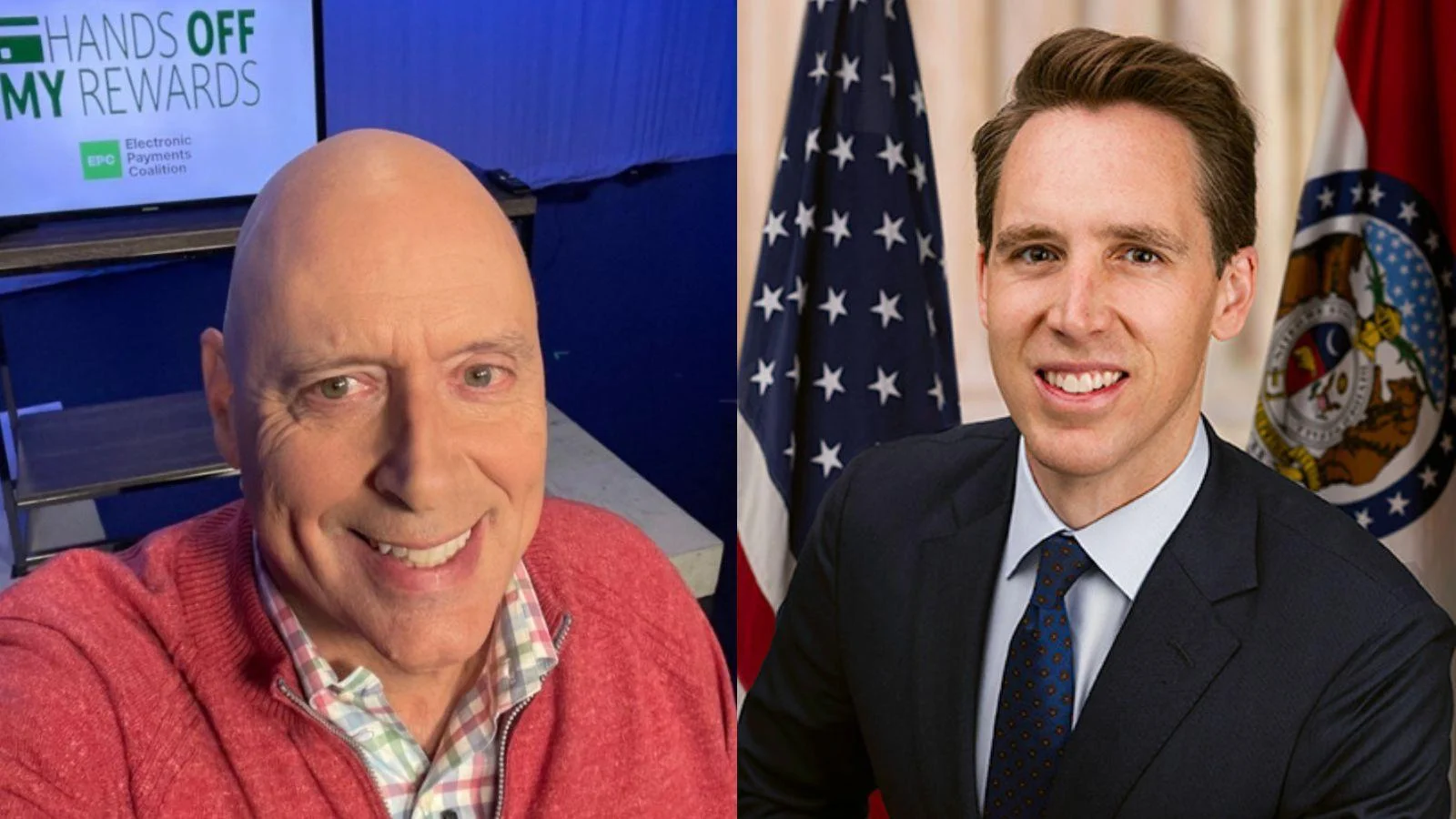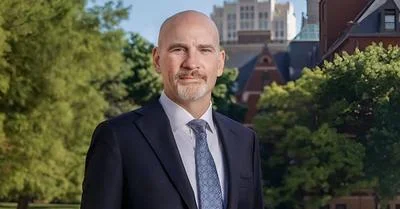Richard Hunt (left), executive chairman of the Electronic Payments Coalition (EPC), U.S. Senator Josh Hawley (right)) | LinkedIn, Senate.gov
Richard Hunt (left), executive chairman of the Electronic Payments Coalition (EPC), U.S. Senator Josh Hawley (right)) | LinkedIn, Senate.gov
Richard Hunt, executive chairman of the Electronic Payments Coalition (EPC), said new credit card regulations sponsored by U.S. Sen. Josh Hawley (R-Mo.) are examples of "crony capitalism at its worst."
"This is beyond ridiculous,” Hunt posted on X. “Sens. Richard Durbin (R-Ill.) and Roger Marshall (R-Kans.) know no bounds when it comes to trying to pass their harmful Durbin-Marshall Credit Card Bill."
"It's crony capitalism at its worst!” posted Hunt.

Richard Hunt's post
| X
The EPC is a trade association that represents credit unions, community banks, and payment card networks. The coalition advocates for policies that protect and promote the use of electronic payments.
The CCCA, or S. 1838, was originally sponsored by U.S. Sens. Richard Durbin (D-Ill.) and Roger Marshall (R-Kans.), would require banks to offer merchants at least two network options, one of which cannot be Visa or Mastercard, for processing credit card transactions. Opponents to the bill argue that if given the choice, retailers would likely choose cheaper, less secure networks for processing transactions, thereby exposing consumers to increased securities and fraud risks.
Hawley joined as a co-sponsor on the bill in February 2024.
Durbin and Marshall are lobbying for inclusion of the bill as an amendment to the National Defense Authorization Act during the lame-duck session, reported Brietbart.
Glenn Grossman, the Director of Research at financial advisory firm Cornerstone Advisors, told Federal Newswire earlier this year that the bill could also lead to increased credit card fraud risk.
“If the CCCA were to be approved, the routing of credit card transactions would move from a ‘single pipe’ to ‘multiple pipes’ of data flowing from merchants to issuers,” said Grossman. “Today, card issuers depend on the networks to profile and identify fraud. They see all the transactions on their network and have developed fraud detection capabilities that would not be possible in a fragmented structure the CCCA would create."
Grossman added that Visa has invested billions on fraud detection.
“The investment builds trust and in return consumers use their credit cards,” said Grossman. "Zero liability means something to consumers. With the CCCA, it is possible that promise is gone."
In a report released in July 2023, “The True Impact of Interchange Regulation: How Government Price Controls Increase Consumer Costs and Reduce Security,” Grossman wrote that studies show 79% of consumers choose credit cards as a payment option because of their data security.
Grossman said that, under the legislation, credit card authorizations would be allowed to flow across many “pipes” which would eliminate much of the “fraud fighting value that Visa and MasterCard have implemented.”
The bill would not require new networks to provide fraud detection, Grossman explained.
The Federal Trade Commission reported receiving 114,348 complaints of fraud in which the payment method was credit card in 2023. Those fraud complaints accounted for $246.1 million.
The FTC also reported receiving 416,582 reports of credit card identity theft in 2023.
The bill is currently pending before the Senate’s Committee on Banking, Housing and Urban Affairs.
In February, Durbin and Marshall announced that Hawley and Jack Reed had joined as new cosponsors for their CCCA. They join Senators Peter Welch and J.D. Vance in supporting the bill.




 Alerts Sign-up
Alerts Sign-up